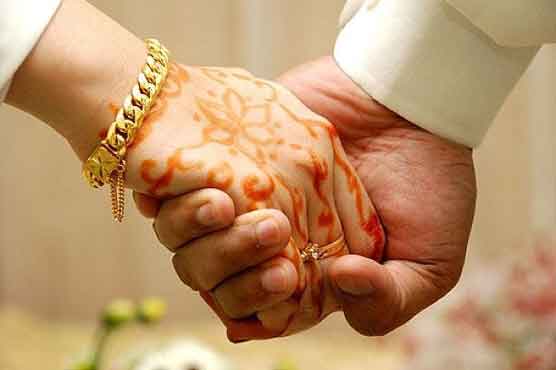
Religious conversion is when an individual decides to adopt a new religion while forced conversion means that they are being made to do so, against their will.
In countries like Pakistan where one’s religious identity is extremely important and determines your social standing, people often employ various methods to climb up the social ladder. Some may feel like a change in religion will offer a more promising future, while others may feel that it’s their only way to lead a successful and dignified life in a country where Muslims are perceived to be ones with a higher social standing as compared to non-Muslims.
Interfaith marriage is also a topic of importance in this country. Given that people feel so strongly attached to their religious identity and find it as a defining characteristic of their whole being, it is important for most people to consider their future partner’s religion before getting into a potentially lifelong relationship.
Therefore, apart from the rocketing high beauty standards for women and financial goals for men, religion plays a key role. It would not be wrong to point out that a marriage prospect simply does not suffice if it meets the religious criteria. In fact, that is where a specific sect within the religion becomes a point of concern.
Very few individuals have thus far been able to survive an interfaith marriage while continuing to live in Pakistan. Most couples simply decide to move to another country where they may be more readily accepted. Those who are unable to leave the country often face harsh judgment from their families and the society at large… even abandoned for life by their relatives at times.
Keeping in mind the interfaith marriage construct, it is interesting to note that there is a greater acceptance for men when they marry out of religion as opposed to women. This is because of the patriarchal setup of our society.
When a man marries out of his religion, it is expected that the woman as well as all their future children will carry forward the religion of the father. However, the same is not true for women as they would have to give up their religion, at least in most cases, and bring “disgrace” to their families and to their religious communities at large.
Thus interfaith marriages in this country mostly equate to religious conversion of the woman.
Recently, a number of cases have spurred wherein women were abducted, raped and then sent back to their families. In other cases, they were forced into marriages as sex slaves. These cases were further complicated when the victim was a non-Muslim. Such women faced triple-thronged pressure: from society, their parents, and the person who abducted and exploited them.
Women know that society will always judge them or resort to victim-blaming. Rather than providing a safe shelter for the victim, society at large plays a huge role in stigmatising and alienating them.
The family, which often belongs to a lower socio-economic status, seldom welcomes their daughters after they have been mishandled. These families are already struggling to make their ends meet and are thus quite vulnerable. Some cash and a promise of security for their children is enough to keep them from taking a stand for their daughters. Finally, the man who assaulted them may come to the rescue by offering to marry the victim. It is not surprising that the women, under immense pressure, often accept this proposal.
It is extremely difficult to completely understand the suffering of such women. However, it is important to ask what we, as a community, are doing to offer shelter to these women? Are we supporting them to lead a dignified life — a basic right of all humans? Are we as a society willing to employ them or encourage them to gain financial independence?
At the same time, it is also important to ponder how we can discourage the offenders. As it is, the offender comes out free of charge and is easily able to live a respectable life in the community. Sometimes, they might also be praised for contributing towards the spread of their religion.
How can we remove such inequities from society so that the offender is brought to justice while the victim leads a decent, fruitful life?
Interfaith marriages are mainly performed (forced conversion) by Muslims.
Faith is just a Faith. There is no
Interfaith drama. Our religious leaders are doing it for financial reason.